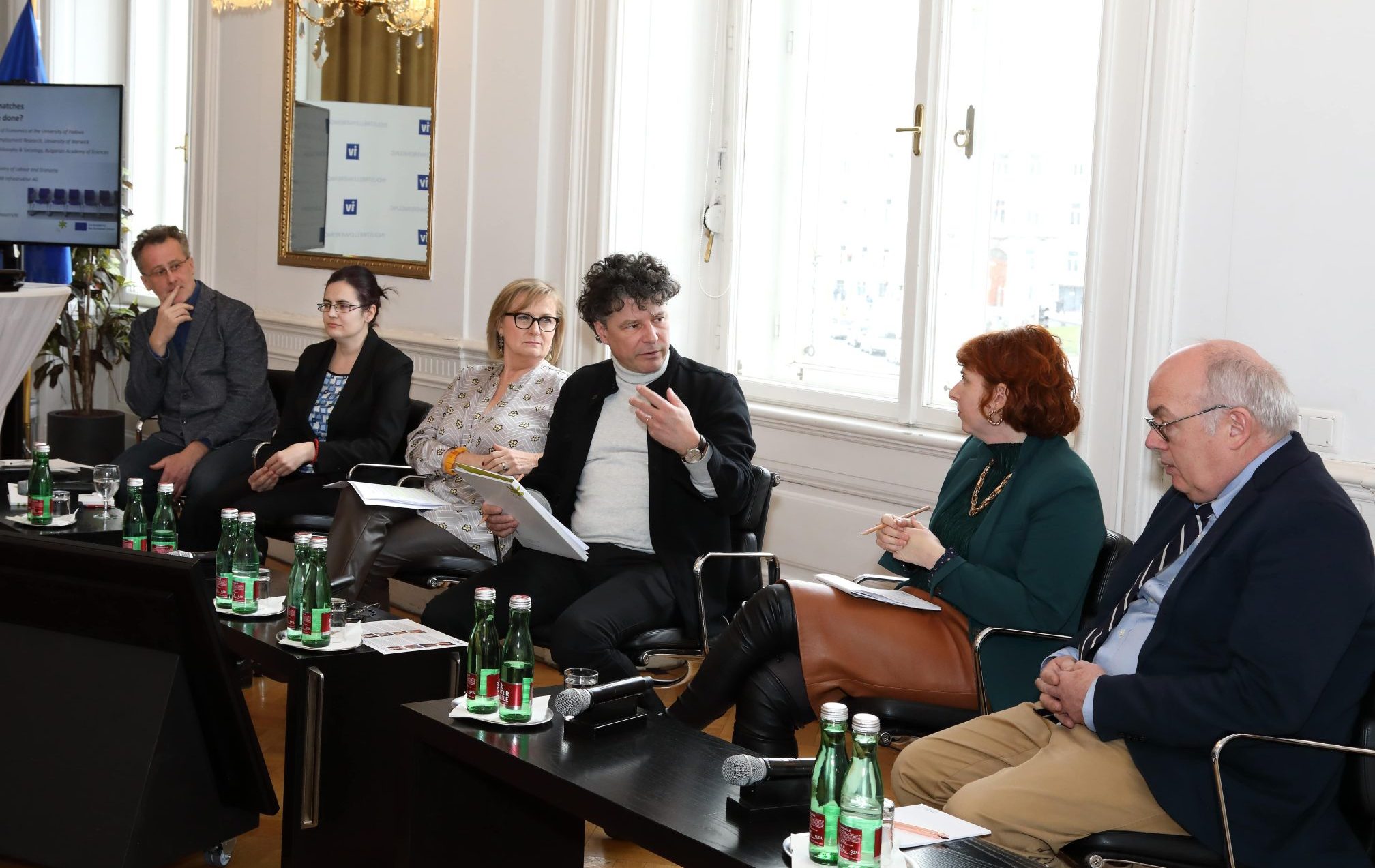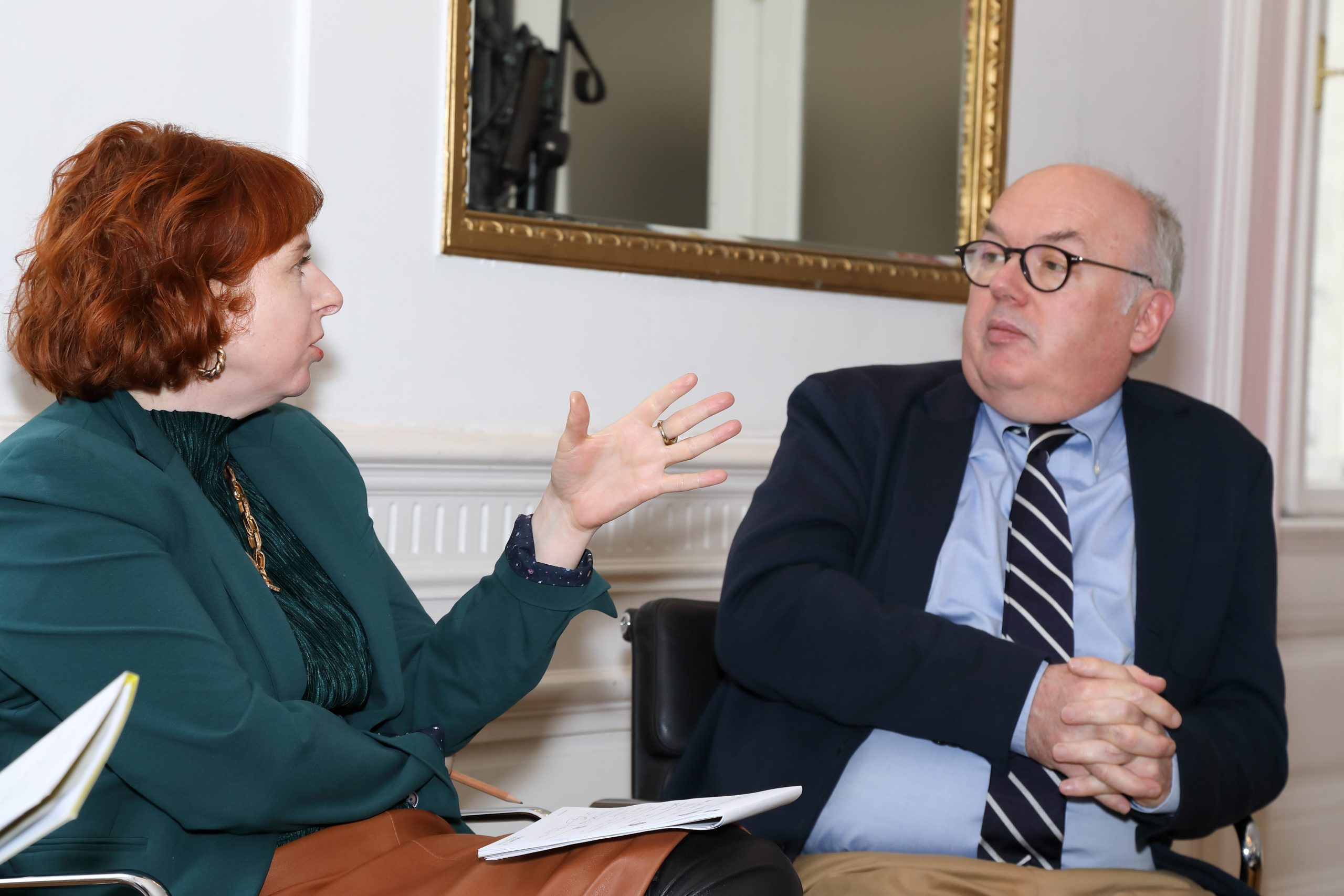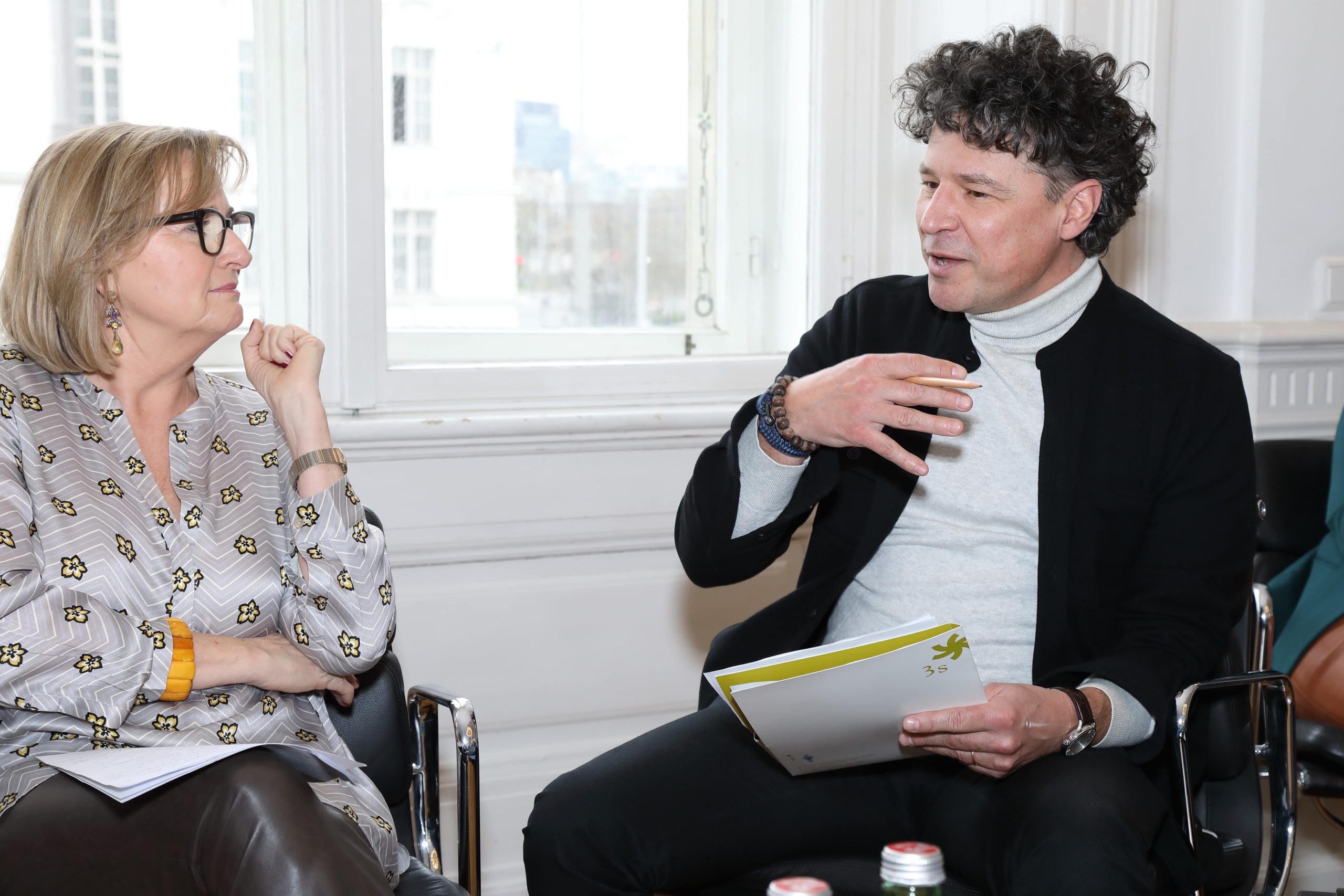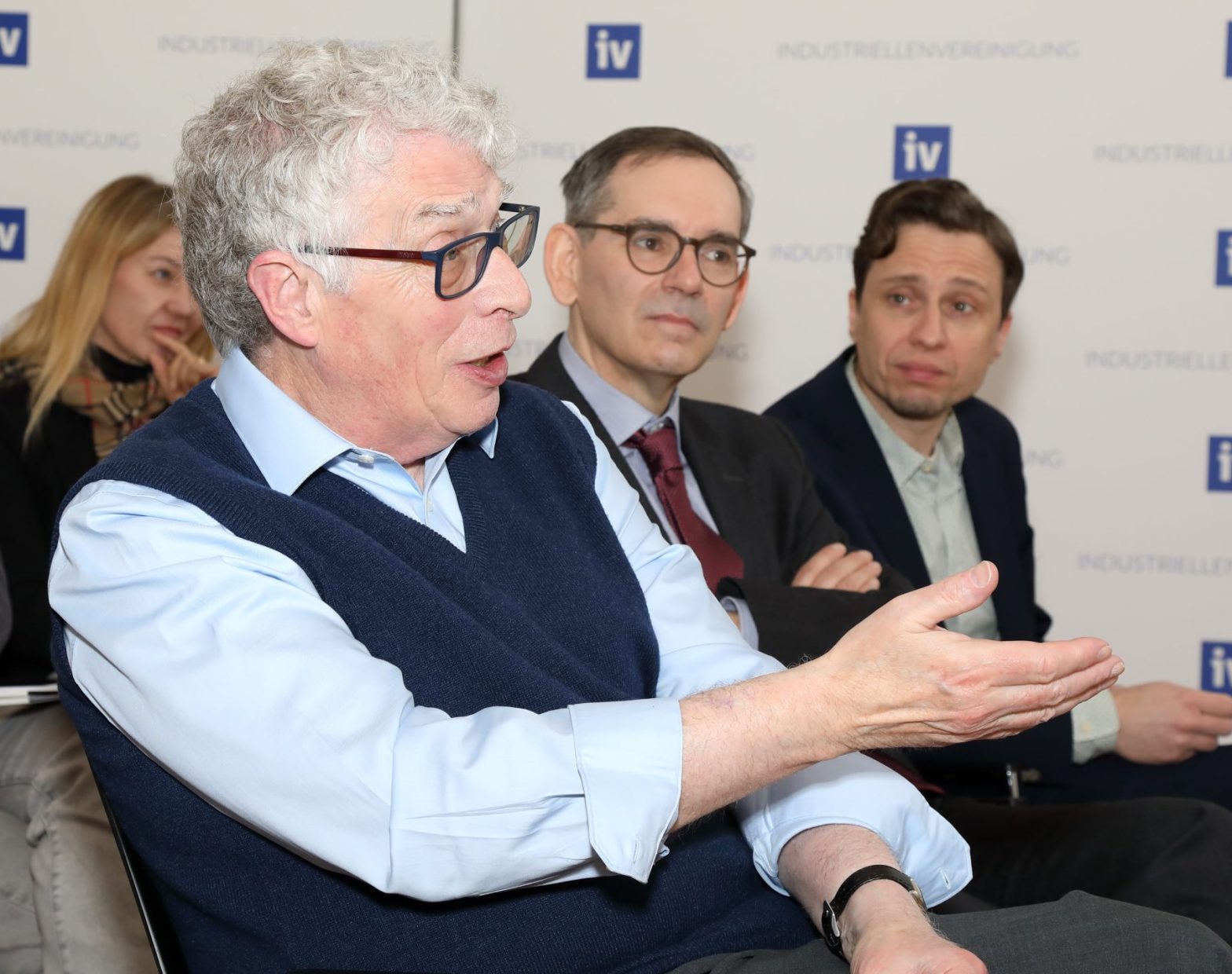Review of the Event: Labour Shortages and Skill Mismatches
The event was part of the kick-off phase of the HORIZON Europe project Skills2Capabilities, which is coordinated by 3s (Jörg Markowitsch) and aims to explore how skill systems across Europe can reduce the level of skill mismatch and better respond to developments in their labour markets. The 2.4 million Euros granted project will try to incorporate the so-called human capability approach to find answers on pressing questions regarding skill mismatch on European labour markets, ranging from how to enable and support the development of future-proof skills in individuals to how companies should design and adjust workplaces to better meet demands.
 In his keynote, Ken Mayhew, Emeritus Professor of Education and Economic Performance at the University of Oxford, stressed that when looking at indicators, skill forecasts and vacancy rates skill mismatch is a problem on European labour markets and that it will get worse – but panic is not the answer, as policy can react to the changing world of work. Job markets have been and will keep on changing fundamentally with new job profiles being created, old job profiles being altered and some jobs completely disappearing, but the main question is: Who will take responsibility and action? The state, the employer or the individual?
In his keynote, Ken Mayhew, Emeritus Professor of Education and Economic Performance at the University of Oxford, stressed that when looking at indicators, skill forecasts and vacancy rates skill mismatch is a problem on European labour markets and that it will get worse – but panic is not the answer, as policy can react to the changing world of work. Job markets have been and will keep on changing fundamentally with new job profiles being created, old job profiles being altered and some jobs completely disappearing, but the main question is: Who will take responsibility and action? The state, the employer or the individual?
He pointed out that policy makers and stakeholders should not focus on predicting the future of work, but take action and create it themselves. In his view, the problem with forecasting labour market changes is that indicators and figures are often (mis)used in the debate to stress an argument in one direction or the other without making it clear what is actually measured. Moreover, Ken Mayhew’s advice to employers is to not rely too much on state-funding and take matters into their own hands by training their workforce wherever possible.
 The expert discussion then served as a joint reflection on the keynote’s input and the general topic by a diverse panel of Austrian stakeholders and international researchers. Focus was the direct exchange of experiences, practices and ideas between stakeholders facing the immediate problems of skill mismatches and researchers trying to make sense of the phenomenon. Discussants were Ursula Bazant, Head of Education & Training at ÖBB Infrastruktur AG, Petya Ilieva-Trichkova, Associate Professor at the Institute of Philosophy and Sociology at the Bulgarian Academy of Sciences (IPS-BAS), Manuela Vollmann, Founder of the social profit organisation ABZ* Austria, Terence Hogarth, Professor at the University of Warwick and lead researcher at the Warwick Institute of Employment Research (IER), and Johannes Schweighofer, Head of the Unit for International Labour Market Policy and Research at the Austrian Ministry for Labour and Economy. The discussion was moderated by Didier Fouarge, Professor at Maastricht University and Director of the Research Centre for Education and the Labour Market (ROA).
The expert discussion then served as a joint reflection on the keynote’s input and the general topic by a diverse panel of Austrian stakeholders and international researchers. Focus was the direct exchange of experiences, practices and ideas between stakeholders facing the immediate problems of skill mismatches and researchers trying to make sense of the phenomenon. Discussants were Ursula Bazant, Head of Education & Training at ÖBB Infrastruktur AG, Petya Ilieva-Trichkova, Associate Professor at the Institute of Philosophy and Sociology at the Bulgarian Academy of Sciences (IPS-BAS), Manuela Vollmann, Founder of the social profit organisation ABZ* Austria, Terence Hogarth, Professor at the University of Warwick and lead researcher at the Warwick Institute of Employment Research (IER), and Johannes Schweighofer, Head of the Unit for International Labour Market Policy and Research at the Austrian Ministry for Labour and Economy. The discussion was moderated by Didier Fouarge, Professor at Maastricht University and Director of the Research Centre for Education and the Labour Market (ROA).
 From an employer’s perspective that already had to take action due to labour shortages and skill mismatch and an organisation that serves as the mediator between employers and workforce, first hand insights into the problems that have been arising for companies and individuals as well as the methods and solutions that are already in place were given. Concerning research on the matter, it was stressed that some of the biggest problems regarding forecasting and informing stakeholders, lie in the definition of concepts such as “skills” and “competencies”. The issue is overly complex, and even if it was possible to predict skill demands precisely – on national, regional and sectoral level – there are many clear cut fields of action to start to support the change coming: support the acquisition of transversal skills, reach out to adult learners and design motivating learning arrangements, train the trainers, strengthen exchange and cooperation between companies, training providers and experts, acknowledge the value of learning in the workplace and the impact of job design to let individuals’ capabilities be put into practice.
From an employer’s perspective that already had to take action due to labour shortages and skill mismatch and an organisation that serves as the mediator between employers and workforce, first hand insights into the problems that have been arising for companies and individuals as well as the methods and solutions that are already in place were given. Concerning research on the matter, it was stressed that some of the biggest problems regarding forecasting and informing stakeholders, lie in the definition of concepts such as “skills” and “competencies”. The issue is overly complex, and even if it was possible to predict skill demands precisely – on national, regional and sectoral level – there are many clear cut fields of action to start to support the change coming: support the acquisition of transversal skills, reach out to adult learners and design motivating learning arrangements, train the trainers, strengthen exchange and cooperation between companies, training providers and experts, acknowledge the value of learning in the workplace and the impact of job design to let individuals’ capabilities be put into practice.
We would like to thank all participants for taking part in this lively event and are hoping to continue fostering the exchange of ideas between stakeholders and researchers on labour shortages and skill mismatch within the Skills2Capabilities project.

image by Daniela Klemencic
Contact: Jörg Markowitsch

